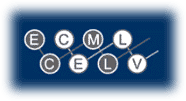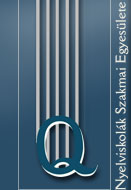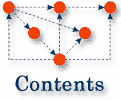
NYESZE
ASSOCIATION OF LANGUAGE SCHOOLS, HUNGARY
(Nyelviskolák Szakmai Szervezete)

Mária Matheidesz
![]()
THE MAIN AIMS OF THE ASSOCIATION:
- to maintain the quality control of the language teaching provision in the private sector
- to run an accreditation scheme based on regular external inspections
- to provide clear and transparent information to customers about services in the member schools
- to represent and protect the interests or member schools for authorities both at governmental and parliamentary level
- to provide professional advice to decision makers
A BRIEF HISTORY
The Association of Language Schools (then called the Chamber of Language
Schools) was established in Budapest in 1991. Its foundation was initiated
by IATEFL Hungary and The British Council Hungary and the idea was supported
by numerous language teachers and language schools throughout the country.
It is worth noting that the language school market had developed in Hungary long before the political changes took place in 1990.When the Association was established, about 80 language schools were already operating in Budapest alone.
The Association of Language Schools - as the very first association representing a national quality scheme - became an associate member of EAQUALS (European Association for Quality Language Services) in 1994.
ORGANISATIONAL STRUCTURE
The Association of Language Schools is run by a steering committee of
nine representatives of member schools, elected by the General Assembly.
The President is also elected directly by the General Assembly.
The Supervisory Board is responsible for the running of the association,
while marketing ethics is monitored by a separate committee.
MEMBERSHIP
The Association of Language Schools has only institutional members, at
present 62 member school and 32 accredited schools. Accredited members
are entitled to use the Q mark of the Association and state in their advertisements
that they are "Accredited by the Association of Language Schools".
Membership has legal requirements, while accreditation is based on an
inspection carried out every second year.
THE INSPECTION AND ACCREDITATION PROCESS
Member schools can apply for accreditation by filling in a detailed application
form and submitting marketing and promotional materials to the secretariat.
Normally a 2-day inspection is carried out by two inspectors, whereby
three main areas are observed: Professional standards, Management,
Facilities. The inspectors prepare a detailed report on the inspection
and grade the 100 categories laid down as inspection criteria. The inspection
report is read by members of an independent committee, comprising prominent
language teaching experts with a wide ranging experience but no vested
interest in private language schools. The committee decides whether they
accept the inspectors' recommendations on pass or fail. Schools are recognised
as "accredited members" after a successful inspection process.
Pre-inspections and professional consultancy are also offered by the Association
on a fee basis.
INSPECTION CRITERIA AND GRADING
The three main areas of inspections are broken down into observable units,
which add up to 100 points altogether. The criteria are graded by 1 (satisfactory)
and 0 (not satisfactory) in all areas, except for the grading of teaching,
where a 4-scale grading (1 = excellent, 0,8 = good, 0,6 = satisfactory,
0 = not satisfactory) is used.
Inspectors observe at least 50% of the total number of teaching hours
timetabled on the days of the inspection and evaluate teaching globally,
without making reference to individual teachers' performance.
The highest proportion of grades, 65 (pass mark: 39) can be obtained for
professional standards, while management carries 20 (passmark:12), facilities
15 (pass mark: 9) points. A pass mark for each main area has to be reached
separately.
The inspection criteria are summarised in the Accreditation Handbook,
which is a public document, available on request from the secretariat.
THE INSPECTORS
The inspectors are language teaching experts who are selected by interviews.
Inspectors are provided with specialised training sessions organised by
the Association three times a year. To attend two training sessions per
year is compulsory for each inspector.
AWARDS
The Association of Language School was awarded the Shiba prize for quality
in 1999.
18th October 2000
WEB SITE: www.nyelviskola.hu
